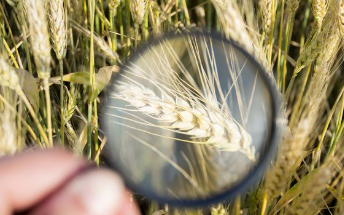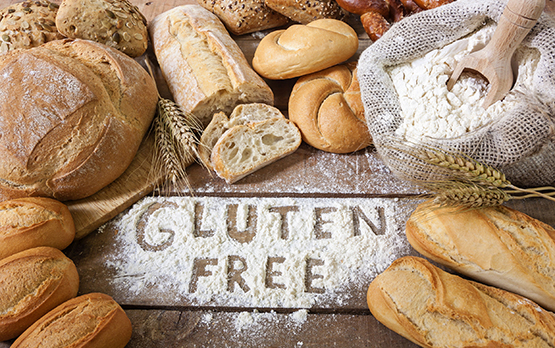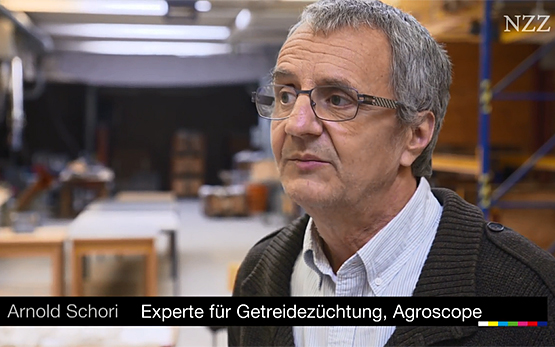Gluten – Curse or Blessing?
Gluten ist ein Garant für gute Teig- und Backeigenschaften. Doch Gluten gerät immer mehr in Verdacht, zu Nahrungsmittelintoleranzen zu führen.
Gluten oder Klebereiweiss ist ein elastisches Protein in einigen Getreide-Arten. Es ist für gute Teig- und Backeigenschaften verantwortlich. Agroscope besitzt viel Knowhow über Gluten-Gehalt, -Genetik und -Eigenschaften, arbeitet selber aber nicht an den gesundheitlichen Aspekten. Doch Gluten gerät immer mehr in Verdacht, zu Nahrungsmittelintoleranzen zu führen. Dieser Bereich gehört in die medizinische Forschung. Forschende der Universität Lausanne greifen aber für ihre medizinischen Studien auf das Agroscope-Knowhow zurück. Weitere Infos im Interview im Anschluss.
Agroscope-Züchtung für die Backqualität
"The current craze for 'gluten free' is
largely a fad"
Interview with Nicoletta Bianchi, development dietitian at Lausanne University Hospital (CHUV), who is collaborating with Agroscope researchers on the topic of gluten.
When can gluten make someone ill?
Nicoletta Bianchi: Apart from coeliac disease (affecting around 1% of the Swiss population), which is increasingly well-known in its various forms (childhood, atypical, silent, etc.), there are other diseases in which gluten is involved. Gluten allergy (a rare true food allergy, IgE-mediated) and non-coeliac gluten sensitivity (hard to cite a figure for the population, given the methodological problems with its diagnosis) which is increasingly studied but still has no real diagnostic markers. It also tends to be a diagnosis made by excluding other pathologies (and demands the opinion of a gastroenterologist familiar with these issues).
Despite everything, the current craze for “gluten free” is largely a fad, with no medical basis, and can lead to restrictive diets, deficiencies and social exclusion.
What key information have you received from the Agroscope researchers?
Nicoletta Bianchi: Dario Fossati has addressed our post-graduate training courses and spoken eloquently and passionately about the evolution of wheat varieties and those currently on the market for various uses. My colleague Esther Guex and I have also had the opportunity to discuss a number of specific points related to gluten with him during our consultancy work at the French-speaking Swiss Coeliac Association (ARC).
Nicoletta Bianchi
Development dietitian
BSc HES-SO Nutrition and Dietetics
Department of Endocrinology - Diabetology - Metabolism - Clinical Nutrition
Lausanne University Hospital (CHUV)
Mont-Paisible 18, CH - 1011 Lausanne, Switzerland
Gluten intolerance or coeliac condition is a serious disease of the intestinal mucosa. Affected individuals must eliminate all foods containing gluten from their diet. Coeliac condition occurs in less than one per cent of the population.
Non-coeliac gluten sensitivity is a subject that is currently still under-researched. It is assumed that other substances in the grain, or other mechanisms, underlie this intolerance. More informations in the interview below.
www.zoeliakie.ch
www.coeliakie.ch
Grains that contain gluten
Wheat, rye, barley, spelt, emmer wheat (farro), einkorn wheat (small spelt), half-ripe spelt (‘Grünkern’), triticale, etc.
Gluten-free alternatives
Buckwheat, millet, rice, maize, amaranth, quinoa, etc.

RTS CQFD - Adrien Zerbini, 10.04.2019
Avec Dario Fossati, ingénieur agronome à Agroscope, et Camillo Ribi, médecin associé au Service dʹimmunologie et dʹallergie du Centre hospitalier universitaire vaudois.








